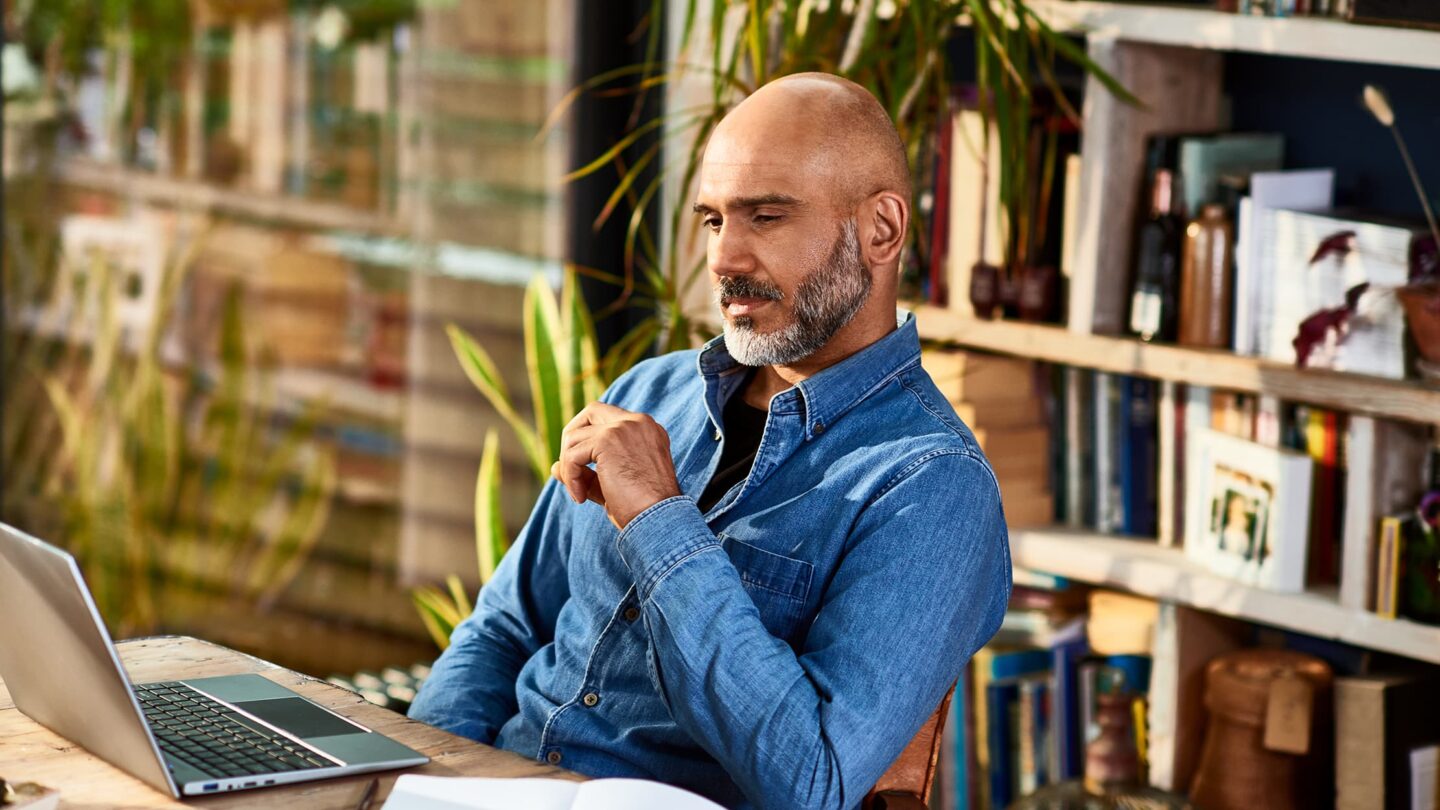Entrepreneur shares how he went from being down in the dumps to successful business owner
Des-lie van Wyk’s top advice for entrepreneurs includes having a vision, getting comfortable with rejection, and building an emotional support system.

Des-lie van Wyk describes his childhood as unstable and difficult.
“My parents never really had anything. We lived in a small apartment in a commune where we shared a bathroom with other families. For the first 23 years of my life, if I wanted to go anywhere, I had to walk because we didn’t have a car and couldn’t afford public transport.”
When Des-lie was in Grade 2, he and his brother would make money by watching cars outside their apartment building. When he was in Grade 7, he would wake up at 06:00 on weekends and school holidays to wash dishes at a restaurant, then walk across the street to a different restaurant to braai meat. He used the money he earned to buy food for his family and stock a small tuckshop he ran out of his house.
“For a long time, I blamed my parents for everything. I often asked why they couldn’t work and provide a better life for us. But it got to a point where I realised that I couldn’t keep blaming them because then I’d never move forward in life. I had to get myself out of the circumstances I was in and get to a point where I could testify about the choices I’d made and the things I’d done to turn my life around and change the outcome of my future. An amazing thing happened when I did. Once I changed my mindset, my parents started to change their ways, too, which proved to me that we can all set an example for others, no matter how young we are.”
Thrown into the deep end
Without realising it at the time, Des-lie was learning valuable business and life skills while watching cars and washing dishes.
“I was learning the skills needed to run a business: profit and loss, negotiation, and plenty of hustle. I was forced into situations where I had to figure out how to create income out of nothing.”
Creating something out of nothing is a familiar endeavour for most entrepreneurs, and Des-lie soon realised that he could use his skills and knowledge to help small business owners grow their companies and develop their management skills.
So, he studied to be an accountant and, after completing his articles, accepted a job offer at an auditing firm. He packed his bags, hopped on a bus, and left the Free State to pursue a new life in George—where he knew no one. He threw himself into his job, learning everything he could and making suggestions to improve the firm’s systems and inefficiencies. Within five months, he was recognised for his efforts and promoted to executive manager.
But then he made his first “rookie error”. He left his job at the auditing firm eight months later to start his own company—without a financial safety net or any clients. And he started Van Wyk Consultants & Accountants at arguably the most difficult time—the middle of a global pandemic.
“When COVID hit, businesses just wanted to cut costs and save money—signing up for an accounting service was not on their list of priorities. I was rejected time and time again. The irony was that it was the most important time to have a trusted advisor at their side to advise them on things like claiming TERS and the Employment Tax Incentive.”
“For eight months, I again found myself in a position with no money. I lost my apartment. It got to a point where I started doing construction work for R300 a day to put food on the table. But those quiet months gave me an opportunity to work on my mindset, reflect on my life, and get clarity on my purpose, which I now know is to help other small business owners to become independent and successful in their ventures.”
Starting from scratch
Having spent time working in a large firm, Des-lie noticed a gap in the market: SME owners didn’t have solid relationships with their accountants. And although they knew a lot about their companies and how their industries work, many lacked the financial knowledge and skills needed to operate their businesses efficiently and sustainably.
“Everyone has this glamorous idea that they’ll establish a company and business will boom, but that’s not reality. It’s only once you start running your own business that you realise there’s a lot more to it. When you work for someone else, you only have to worry about doing your job. There’s always someone else looking after the other business functions, like finance and payroll, admin, and marketing. But when you go off on your own, you suddenly wear all these hats.”
“I went from being an executive manager at an audit firm to starting from scratch, trying to build a company out of thin air, and managing every aspect of my company. I experienced many knocks and setbacks, but by the grace of God, I did it, and things keep getting better and better.”
In fact, it’s going so well that Des-lie was named a finalist in the George Business Chamber Entrepreneur of the Year 2022 Awards.
Having been in the trenches, Des-lie shares this advice for aspiring entrepreneurs:
Start on the side
Build your business on the side while you still have a full-time job. Save until you have enough cash flow to cover at least three to six months of your current salary or operational costs. That way, when you make your side hustle your main hustle, you take some strain off, especially during the first few months when you’re building a client base.
Find emotional support
In entrepreneurship, the highs are extremely high, and the lows are extremely low. You’ll need support from friends and family to ride the difficult waves and share in the victories.
“You’ll hear ‘no’ a lot in the beginning, so you need to be okay with rejection, but you also need mechanisms for coping with it.”
He quotes American entrepreneur Jim Rohn, who said: “Become a millionaire, not for the million dollars, but for the person you become in the process of becoming a millionaire.”
A lot of business owners put so much focus on the business itself that they neglect their emotional, mental, and physical wellbeing, and they lose sight of how they’re growing as a person alongside their company, says Des-lie.
“Obviously, money is important to the sustainability of a business, but how will you carry over that sustainability to your employees if you can’t look after your own wellbeing? You’re going to take a lot of knocks as an entrepreneur. You need a resilient mindset and emotional support system to stay strong, get back up, and push forward.”
The difference between a successful businessperson and an unsuccessful one, he says, is that the successful person will get 1,000 rejections but will still try for the 1001st time to get a ‘yes’. The unsuccessful person gives up after two rejections, saying, ‘this isn’t for me’.
“It’s about determination and knowing where you’re moving towards as a person and a business owner. I believe many businesses fail in the first two years because the owners don’t have the emotional support that they need, and their mindset is not where it should be. The people you surround yourself with, the books you read, and the content you consume are all critical components when building a successful business.”
Have a vision and a plan to achieve it
Many people start a business just to put food on the table, but this is not a sustainable way to operate, says Des-lie.
“You end up working for the worst boss ever—yourself—because everything falls on you. You’re responsible for paying debt, settling accounts, and paying your salary. If you’re just surviving day to day and wondering how you’ll make it to tomorrow, you’re going to burn out.”
Having a vision and setting goals is crucial, he says.
- Do you want the business to cover your pension one day?
- Do you want to build a business that you can sell?
- Do you want to create a generational business that you can hand over to your children when you retire?
“Focus on building sustainability in the beginning. Don’t put an expectation on yourself to make a million in the first month because it’s highly unlikely to happen. Create a 15-year plan, a 10-year plan, a five-year plan, and immediate goals. Vision keeps you focused.”
Don’t underestimate the importance of marketing
Many small businesses don’t advertise or market themselves, because they don’t realise how important it is for their business growth, says Des-lie.
Put yourself out there and focus on forming local connections and building relationships in the early days.
Network in the town or city you’re in. Visit business chambers and networking groups in your area and start to create relationships with the people around you. You won’t necessarily see the impact immediately, but the 20 or 30 people that you speak to about your business will remember your name when someone asks for a referral in future.
“In the beginning, focus on getting your name and brand out there, on creating an environment where people can see you, Google you, and go to your social media platforms to see what you’re about. People won’t know you exist unless you tell them,” says Des-lie.
Aim to be the best at what you do
Even if you do something that 1,000 other companies on the same street do, there is a gap in the market—for you.
Be the best at what you do. Make sure that the service and quality you provide are an important part of your business.
“People tend to focus a lot on the numbers and making money. They forget about quality and service and how a client feels at the end of the day when they don’t receive the service they were promised. Focus on building sustainability into your business first; then focus on profit.”
Don’t give up—South Africa needs you
“South Africa’s GDP needs to double, and then double again, in order to achieve true sustainability,” says Des-lie. “And we all need to take responsibility for getting South Africa back on track.”
He gives the example that if you make R10,000, you need to double it to make R20,000, and then double it again to make R40,000. And if you can’t do that, you need to find a way to use the R10,000 you make now to help three other people make the same amount.
“We are responsible for our own growth, and if we can, we need to accept responsibility to create opportunities for others,” he says.
“Everyone has had difficulties in life, but it is possible to rise above it all because everyone has a passion and should have a goal that they strive for. We just need a new mindset in how we approach everything. It’s about how hard we’re willing to work, our determination, and our life vision. Be encouraged, be motivated, and make sure that everything you do is done with 100% of your willpower.”
Des-lie is a big believer in paying it forward. If you’re just starting out as an entrepreneur and need help with your finances, contact Des-lie at [email protected].
[Ebook] The rise of the virtual accountant and what it means for the finance profession
Discover how the accounting profession has evolved from one of number-crunchers to business and financial consultants.






